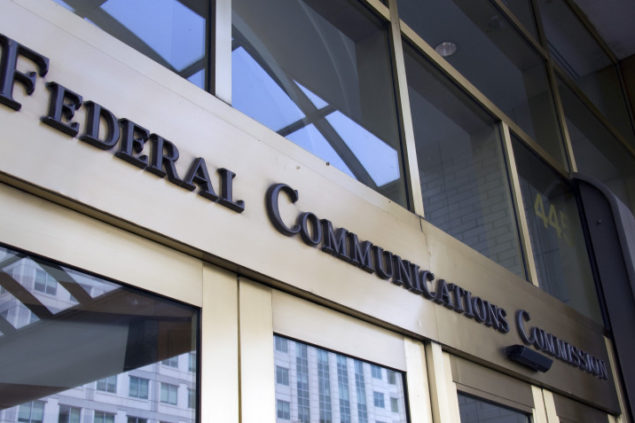Tech Roundup Episode 16 – The Catawba Digital Economic Zone

In February 2022, the Catawba Nation of South Carolina voted to approve the first tribal digital economic zone in the United States. This “Catawba Digital Economic Zone” includes an independent regulatory framework and commercial code, which its organizers intend to utilize to attract financial technology firms to the Zone as online “ecorporations.”
In this episode, Catawba Digital Economic Zone CEO Joseph McKinney joined tech policy expert Ryan Hagemann to discuss the Zone and its novel regulatory framework.
Transcript
Although this transcript is largely accurate, in some cases it could be incomplete or inaccurate due to inaudible passages or transcription errors.
[Music and Narration]
Introduction: Welcome to the Regulatory Transparency Project’s Fourth Branch podcast series. All expressions of opinion are those of the speaker.
Jack Derwin: Welcome to the Regulatory Transparency Project’s Tech Roundup podcast, part of RTP’s Fourth Branch podcast series. My name is Jack Derwin, and I’m Assistant Director of RTP at The Federalist Society. Today, I’m very excited to be joined by Ryan Hagemann and Joseph McKinney to discuss the Catawba Digital Economic Zone. Ryan, who will be our moderator today, is Co-Director of the IBM PolicyLab. He was previously a Senior Fellow at the International Center for Law and Economics, as well as at the Niskanen Center. And his policy expertise focuses on the regulatory governance of emerging technologies.
Joe is CEO of the Catawba Digital Economic Zone, and a leading expert in the governance as a service industry, which aims to improve governmental services through special economic zones and distributed ledger technologies. To view their full bios, you can visit RegProject.org. As always, all expressions of opinion on today’s podcast are those of our speakers. Without further ado, I’ll pass it over to you, Ryan.
Ryan Hagemann: All right. Thanks a bunch, Jack. And thanks to you, Joe, for joining me to chat about an exciting bit of news that’s largely flown under the radar over the past two months. And that is the announcement of the first digital economic zone in the United States. So, originally approved by the Catawba Nation’s General Council back on February 19, the Catawba Digital Economic Zone is essentially an independent administrative jurisdiction governing digital asset management, fintech, and cryptocurrencies, located within the Catawba Nation in South Carolina.
And, as the original press release notes, “Using a model similar to Estonia’s E-residency, after completing the Know Your Customer requirements, anyone in the world will be able to set up an e-corporation online in the zone and take advantage of policies and regulations that allow them to safely manage their digital assets, raise investment capital, and offer digital banking services.
So with that high-level background under our belt, let’s jump over to you, Joe. And I want to start off by asking you to kind of give us your own overview of what the Catawba Digital Economic Zone is, and the history of how this all came to fruition.
Joseph McKinney: For sure. I think sometimes I like to explain it in a little bit of a narrative, and then it gets to the wider picture of what it is, as it unfolds. So I first want to say that the Catawba, they are my boss. This is their project. I just have the pleasure and the honor to be able to lend some expertise I developed over the years in special economic zones and distributed ledger technologies, to make it happen. And they were pursing a special economic zone project, starting six years ago. And for the first three years, they weren’t able to come to an exact structure to make it profitable and understandable for investors.
So they brought us onboard, because they knew of our work at the Startup Societies Foundation, and our non-profit work. So I came onto this project, and I was looking at this opportunity like many people in the United States and simply said, “Yeah, this sounds interesting. But I don’t know. How does it work? Aren’t Native Americans paper tigers?”
But the more you dig into it, you actually found out it’s the exact opposite. American Indians, through their tribal governments, have the same authority, as a rule of thumb, as American states, and sometimes even higher. The only reason that they haven’t reached that threshold of authority and influence is because of capital and a lack of structure that can make it effective and profitable and scalable.
And that’s precisely what this zone does. It create a correct structure that can attract capital that allows people to interface with Native American governments, not in the way that they are today, which is, namely, one-off examples of jurisdictional arbitrage, such as gaming or lending or cannabis, or what have you, but as a true jurisdiction.
So we were brought on board to sort of structure that, and, specifically, how that could be brought with something that has high profit potential, namely digital assets. And also it’s a space that just isn’t well-regulated. So last year, me and my wife, we actually moved down to South Carolina to work with the Nation’s attorneys, both on the business arm, as well as with their Nation’s attorneys and their outside counsel, with large, prestigious Indian law firms like Hobbs-Strauss, to work on a piece of legislation.
And so we went through the process of going back and forth on how that structure would work, conducting feasibility studies, and finally got an approval for the legislation and even secured a special meeting with the General Council. And, in parallel to that, we were conducting community engagement, so, going door to door, meeting people at Golden Corral for dinner and for coffee, sending printed materials, doing Zoom meetings, etc., basically just doing everything in our power to make sure that the message was out there about the zone, so that the Catawba people would be educated about what they would be voting on on February 19.
And so we had the meeting. There was final discussion. And then it was overwhelmingly voted by the Catawba people. And what they voted on was, essentially, a special jurisdiction with its own commercial code with a regulatory body called the “zone authority,” which creates regulations on top of it, and registers companies, similar to Delaware or Nevada, or what have you, through our digital platform, and is able to be governed there at the same level of a state, and many times, higher. So that’s the 1,000-foot view, and sort of the general story.
Ryan Hagemann: Great. It sounds like it’s a pretty unique story. And I think what’s interesting to me is maybe kind of getting an understanding of maybe the broader, more global, more historical landscape here. Because this sounds like such a unique story, I’m wondering whether or not there are any foreign or historical analogs to something like this, so anything in the past or anything currently in existence. And, in particular, when I think of this digital economic zone, my mind immediately drifts towards kind of modern developments and institutional governance like charter cities and Chinese special economic zones. Is that a fair characterization here? Or is this something fundamentally different from anything that we’ve seen before?
Joseph McKinney: So the most unique thing about an iPhone isn’t the camera. It isn’t the phone. It isn’t the browser. It’s combining all those things together. So, in this sense, it is unique. This is the first digital economic zone within the United States, especially done so under the sovereignty of a Native American tribe. But you are correct, a lot of the individual bits and pieces have been done in the United States or abroad.
For instance, a lot of the regulations that we’ll be pushing forward on are done by the State of Wyoming. Of course, we’ll further them and improve upon what they have already done. Like, for instance, we’ll have a best-class commercial code from day one, which, not necessarily, Wyoming has, in a lot of cases, and it doesn’t go as far as it can, because they have special interests that they have to contend to in the banking industry or securities or what have you.
Also, there are Native American tribes that have done individual things with regulating, and have commercial codes, but they haven’t put it all together like we have, in terms of a jurisdiction. And, like you’ve mentioned, there are special economic zones abroad that have experimented with similar things. I would say the closest analog would be the Dubai International Financial Center, which is a leading special economic zone in Dubai that is privately run, though it is publicly owned. But it’s run as a for-profit corporation you can see on Crunch base.
But it’s actually a relatively small plot of land. I think it’s, like, 193 acres, or something like that. But its main arbitrage is that it has clear and simple and streamlined rules for financial companies. And that’s specifically helpful in the Middle East, where they have a lot of Sharia-compliant laws that prohibit usury. So I would say that is a pretty big and similar example.
Ryan Hagemann: Yeah. Great. And it leads me, I think, naturally, into my next question, which is given that there are other things like this in the world right now, but also given the fact that we kind of have existing regulatory institutions in this country and at the international level, specifically, I think of, say, like the SEC here in the U.S. or OCC and Treasury. But then, at the international level, I think you also have FinCEN. And so there are layers of regulatory governance already in place at multiple levels of governance in the world. So I guess the question that dovetails a little bit off of that is why is something like this, at least, in your mind, necessary, in this current state and time?
Joseph McKinney: Well, I would say there is existing regulatory framework. But there is a lack of clarity about this particular industry, digital assets, how it’s classified under existing law and how it’s classified under regulations. And I would say a lot of these regulators are not against the idea of experimenting with digital assets. They simply can’t find a way to safely, yet nimbly, create the sort of sandbox. This is precisely what we’re doing. We’re creating a sandbox where we’re dovetailing digital assets under existing law and giving it a little bit of breathing room, while providing a lot of compliance. And in working with regulators and collaborating with them on behalf of a sovereign entity like the Catawba, that’s precisely our strategy.
Now, when you’re sovereign, to a certain extent, you don’t have to work with other sovereigns in the area. For instance, the tribe is on equal foot with other states, yet it makes good sense to be on good terms with those states. And tribes are sovereign in the United States. Ultimately, Congress has ultimate authority over them, what they “plenary” authority. But they have a lot of room there. But the point being is we should always have good neighbors. And by creating with collaboration, you can create a sort of a sandbox situation that they want, but they currently aren’t able to, because they are slow-moving organizations.
Federal regulators, they want innovation, but they don’t have a way that they can nimbly and safely have the sort of sandbox type of situation. What this provides is precisely that. That allows regulators to dovetail digital assets and fintech into existing law, in a compliant manner.
Ryan Hagemann: Yeah. I think that makes a lot of sense. And, I guess, here’s where I might push back a little bit. And I want to get your thoughts on sort of a potential, maybe a potential critique. But I think this is more kind of identifying near-term problems with something like the Catawba Digital Economic Zone.
So you have, on one hand, certain regulators who, to your point, they want to be nimble, they want to be pro-innovation, and they want to do it all with a respectful balance, being mindful of consumer protection, and things like that. But you also have regulators who, maybe, when they’re doing that balancing act on the scales in their mind, they’re actually weighted a little bit less, being nimble and being pro-sandbox and pro-innovation.
So one problem I could foresee is how the Catawba Digital Economic Zone’s authority potentially intersects with federal regulators currently tussling over digital asset regulation. So I’m thinking the SEC, the FTC, Treasury, CFPB maybe, and others. There’s a lot of financial regulators in the U.S. From your perspective, working on this project, is that sort of a realistic concern? Is that a near-term problem? And how do you see the Catawba Digital Economic Zone fitting into the existing regulatory apparatus in the U.S., if at all?
Joseph McKinney: Well, like I said before, a Native American tribe has the same status as a U.S. state. But a U.S. state can do significantly a lot, in terms of regulations regarding digital assets and banking and all the things around it, as states like Wyoming have demonstrated. But even Wyoming cannot go far as it can, not for legal reasons, but for political reasons. Because if they move too far in one direction, their existing bank charters, for instance, would be too favorable for it.
Some people have speculated that’s the reason why they have 100 percent reserve banks for their special depository institutions to custody crypto. Not because of any legal reasons, or even any ideological reasons, but because there are special interests that wouldn’t want them to be able to lend based on deposit. So we would fit at around that same level. And in terms of dealing with regulators, based on the conversations that we have had with regulators, I do think they’re open. I think one of the core differences — this actually seems strangely personal, because you imagine regulators to be almost robotic — I think one thing that is actually really key is coming humbly and respectfully to talking with regulators.
And there’s been some other states that have not been as respectful or humble, when they come to the table to talk about these types of arbitrage opportunities and what they’re planning to do. And, as a consequence, they create this animosity that wouldn’t exactly exist just because of the policies that are on the table, but just because of the tone of it. And I know that sounds a little bit ridiculous, but it’s true. And, ultimately, that’s the whole philosophy here, that we want to be good partners. And we already see that starting to bear fruit.
Ryan Hagemann: I think that makes a lot of sense. I think the inverse of the approach you all have been taking is sort of the way that Uber tried to kind of circumvent existing rules and regulations in standing up its company. And for all the benefits that Uber has brought to the world, obviously, it’s created certain back-end headaches for them, after they’ve emerged into the market and have become something of a political football. So I want to play devil’s advocate for a second, because, given how new this all is, there’s not, shall we say, an industry of opposition, as we find in other sectors and in other policy debates.
So I want to offer one theoretical criticism that I could imagine people bringing to bear on something like this. And it goes something like this, the Catawba Digital Economic Zone is essentially an end-run around the government’s legitimate authority to regulate and police digital assets, and that the zone, essentially, leaves consumers unprotected from risks that are better managed by federal regulatory agencies that have a lot of in-house experience and expertise, and a historical culture that makes them well-suited to, essentially, address problems that emerge when consumers are fleeced by scams or things of that nature. How would you respond to a criticism that’s levied against the zone that essentially relies on that sort of consumer protection argument?
Joseph McKinney: I would say the exact opposite. First and foremost, this is not a way to avoid the federal government or the government in financial matters. This is a way to create a jurisdiction, which is a government that is compliant with federal law, and is specifically geared towards, yes, creating a space for innovation within digital assets, but mostly clarifying where it is under existing law, including consumer protections.
And one way that we want to provide that is to make sure that bad actors don’t enter the space. Unlike other states like Delaware or Wyoming, we’re going to be requiring KYC and AML for anyone that’s registering a company within the zone. And that, by itself, will reduce the amount of possible infractions within our ecosystem and create more trust in other ones, because, in order to get into this ecosystem, you have to be thoroughly vetted in order to make sure that you do so.
And we’ll make sure to collaborate with regulators and all their consumer protection laws that other regulators have to push forth. So no, this is not a way to work around the government. In fact, this a way to use technology to become even more compliant and make sure that there is more respect for these consumer protections.
Ryan Hagemann: Got it. I remember a number of years ago, Marc Andreessen wrote an op-ed for Politico that discussed the idea of creating sort of a plenitude of Silicon Valleys around the country, based on new emergent technologies and sectors, in other words, creating zones of regulatory arbitrage, like we’ve been talking about, where states and municipalities could be more incentivized to create competing zones of technology ecosystems. So you’d think of a drone valley in Detroit, or an autonomous vehicle valley in Seattle, as opposed to kind of replicating the software-based ecosystem that’s emerged in Silicon Valley.
Do you see this zone as the first among many other digital asset zones? And could this translate into other industry-specific special economic zones in the future, if successful?
Joseph McKinney: Yeah. I do agree with his take that Silicon Valley is unbundling. It’s not a place. It’s more of an idea. Or, for a particular industry, it’s an individual place. I will, probably, put a stake in the ground that this is going to be the most competitive jurisdiction, especially for digital assets. And part of that is because, unlike a lot of jurisdictions, we’re operating very similar to a network effect. We do have a digital platform, like social networks do. So we do have, an affect, technologically, that incentivizes other people to join the network.
And also, because of our legal system, there is an incentive for companies that are operating within the zone to do business with other companies that are within the zone, causing more and more people to want to join. And I would say one of our core competitive advantages here is not even what we have on day one, which is great, but the structure of it. Because U.S. states, they have legislators. They have at least hundreds of thousands of citizens, if not millions of citizens that they have to contend with, and businesses that have sometimes existed for hundreds of years.
They’re not able to move quickly on industries like this, versus the zone, they have a commission of regulators, that is, a five-person board, in order to create these regulations. So even if, let’s say, Wyoming was to come up with a new law, and they were talking about it with their blockchain committee, and they go out to lunch. We could, potentially, be in that room, or be watching the livestream, and by the time that they come back from lunch, we could have it implemented into regulation. So, no matter what good law or regulation another jurisdiction could put forth, we can implement it, and we can always move quicker.
Ryan Hagemann: So that leads me into my penultimate question, which is what’s next for the Catawba Digital Economic Zone? You’ve got it set up. You’ve got things kind of up and running. You had some initial interest. You have a mission. You have a vision. You have, essentially, a jurisdiction, if you will. So what happens now? Give us kind of a timeline on how you see this developing over the next one, five, and, maybe, ten years, if you want to go with that trifecta.
Joseph McKinney: Absolutely. So where we are right now is that we have built out all the handbooks and operating materials for employees to start regulating and registering companies. And right now we’re in the process of identifying hires to be regulators within the zone. And this goes to your question about legitimacy. We are seeking candidates that are established regulators, people that would be respected by state, federal, and international regulators from around the world. So, hopefully, within the next couple of months, we’ll be registering companies and issuing regulations about the digital asset industry.
We just had our Zone Authority Commission meet for the first time, a week ago. And they just adopted a chair. And soon it will be establishing the bylaws of the zone authority. And where I see us in the first year or so is kind of like Uber. Why would people jump into a stranger’s car, at first, was the first question. It seems strange. And then the question then became, why would you ever get into a cab? And the question is the learning process of people getting acclimated to a seemingly strange idea, but just makes sense, especially with good execution and building trust over time.
So that’s where we’re going to be. We’re going to be in a process of okay, do we go to Delaware, or do we go with this new zone? And then, over time, I think we’re going to be able to disrupt that market, entirely.
Ryan Hagemann: Well, going with the Uber example, I can definitely say it will be an interesting future. I would say, if you had asked me ten years ago if I anticipated the future I’m living in right now, here and today, I probably would have said no, absolutely not. So it’s interesting how quickly, to your point, people can get acclimatized to new things that previously were thought undoable and unthinkable. So, I guess, to close us out, do you have any closing thoughts or comments for the folks listening?
Joseph McKinney: So, I would just say, if you want to get involved, come and check out catawbadigital.zone. I feel like a lot of these listeners are super-interested in the intersection of law, regulation, and technology. So we’d love to get your feedback, as well, and see if we could partner with any of you. What we need right now is people that are knowledgeable about this topic to give us feedback as we develop our regulations, to bring in partners that are interested in registering in the zone. So, just any expertise coming our way, as we’re developing our zone authority, that’s something that we’d really appreciate.
Ryan Hagemann: Great. I think you hit the audience here exactly. And feedback is a gift. And a stranger is just a friend you haven’t met yet. So, Joe, interested in seeing how this initiative thrives and evolves in the coming years. And, with that, thanks so much for taking the time to chat. It’s been a pleasure.
Joseph McKinney: Of course. Thank you so much, Ryan. And thanks for putting us on the show.
Jack Derwin: Of course. Thank you so much for joining us, Joe. And thank you for hosting today, Ryan. This will be absolutely fascinating to see what’s next for the Catawba Digital Economic Zone. And thank you to our audience for tuning in to this episode of RTP’s Tech Roundup podcast. You can subscribe on any major podcast platform. And check out our website at regproject.org, or our social media counts @FedSocRTP, to stay up to date. Thank you.
[Music]
Conclusion: On behalf of The Federalist Society’s Regulatory Transparency Project, thanks for tuning in to the Fourth Branch podcast. To catch every new episode when it’s released, you can subscribe on Apple Podcasts, Google Play, and Spreaker. For the latest from RTP, please visit our website at www.regproject.org.
[Music]
This has been a FedSoc audio production.

Topic
The Federalist Society and Regulatory Transparency Project take no position on particular legal or public policy matters. All expressions of opinion are those of the speaker(s). To join the debate, please email us at [email protected].









